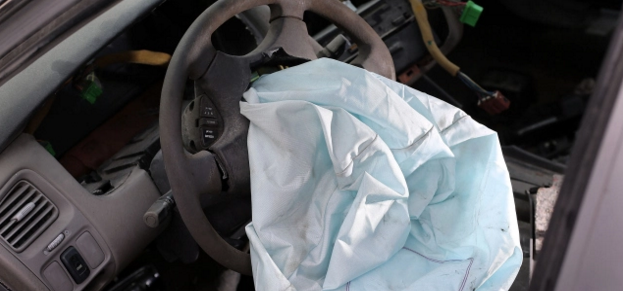HOUSTON, TX (03/31/2016) — A 17-year-old girl from Texas is the latest victim killed by a defective Takata airbag, which detonated during a moderate rear-end collision.
According to Reuters, 17-year-old Huma Hanif was killed on March 31st, 2016 by a defective Takata air bag which was equipped in her 2002 Honda Civic.
“A piece of the metal fragment was found lodged in her neck,” said Fort Bend County Sheriff Troy Nehls. “Our investigation also revealed the metal fragment came from the air bag.”
Sheriff’s Deputy Danny Beckworth stated that Hanif was driving her Honda when she rear-ended another vehicle, causing the air bags to detonate. Shrapnel from the air bag hit her in the neck, killing her. Officials reported that Hanif was wearing seat belt, and the accident only resulted in moderate damage.
“Everybody should have walked away from this,” Fort Bend County Sheriff’s Deputy Danny Beckwith told Reuters.
This untimely death is the result of a malfunctioning air bag inflator, which has claimed the lives of at least 10 people in the United States and another in Malaysia.
An additional 100+ people have suffered injuries due to these defective inflators. The airbag inflators have been known to explode with excessive force, causing the metal canister break apart and send jagged shrapnel toward drivers and passengers.
At this time, 14 auto manufacturers have issued recalls on ~34 million U.S. vehicles to replace the defective Takata airbag inflators, which are powered by the chemical ammonium nitrate. Scientists hired by a consortium of automakers have found that prolonged exposure to airborne moisture and high temperatures can cause the chemical to deteriorate, making it unstable.
The Civic involved in this collision was first recalled in 2011, but the vehicle was never repaired. Recall notices may have been mailed out to Hanif’s last known address, but it is unclear if she had recieved any notice at all. Bryan Thomas—a spokesman for the U.S. National Highway Traffic Safety Administration (NHTSA)—states that auto manufacturers need to do more than mail notices. “Automakers need to get creative and more aggressive about how they’re reaching these vehicle owners,” Thomas said.
The NHTSA reported that anyone can access their website to check if a particular model qualifies for a recall repair. If it is, those owners can take the car to a dealership and have it fixed free of charge. It’s worth noting that some drivers have reported that the repair is not always available, and that some dealerships simply cannot get enough replacement airbags to meet demand.
“I would just like to urge everyone, regardless of whether or not you receive a recall notice, if you have a car that has a defective air bag, get it fixed before you lose a loved one,” Faizon Hanif, the victim’s brother, said.


